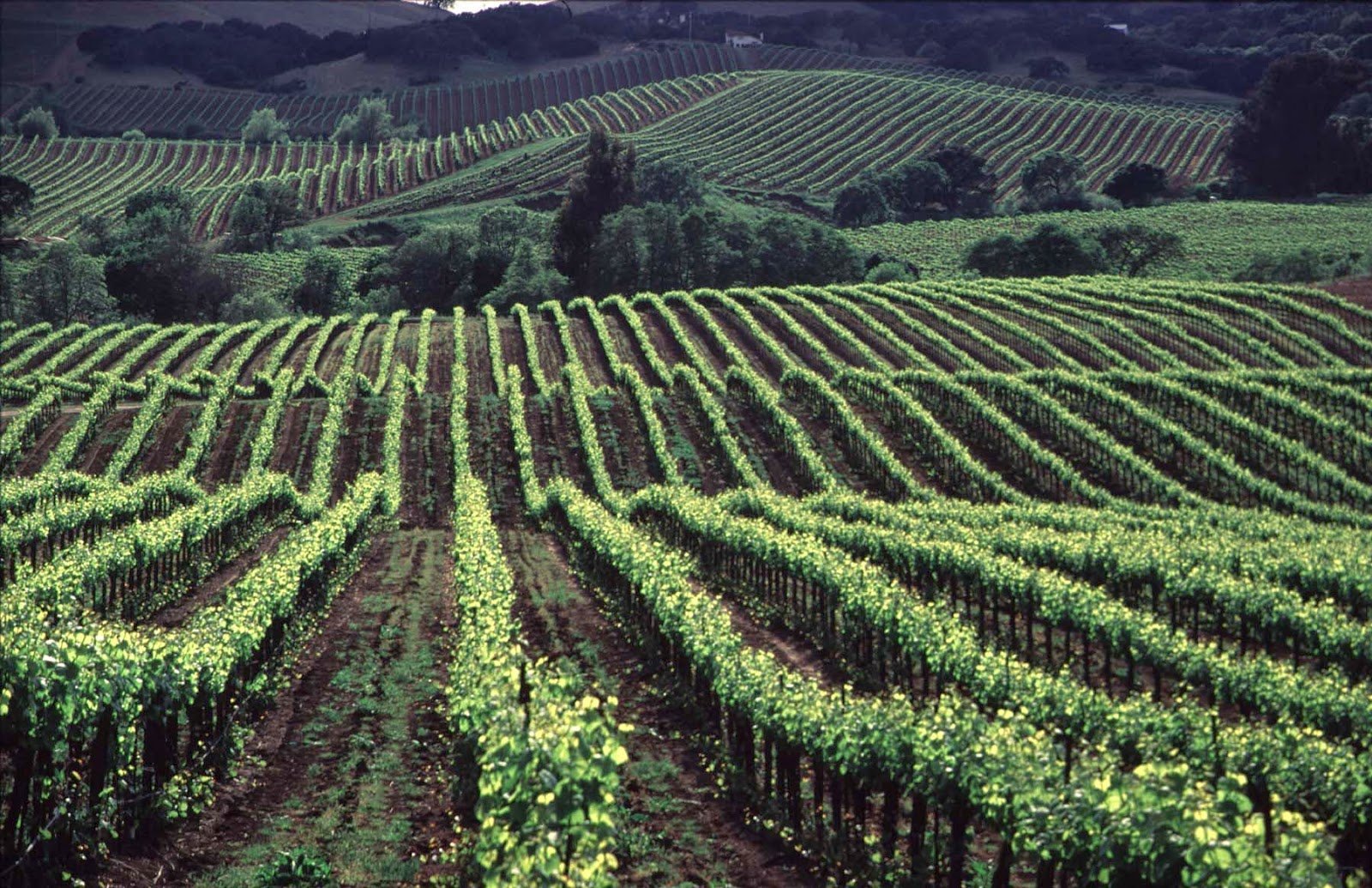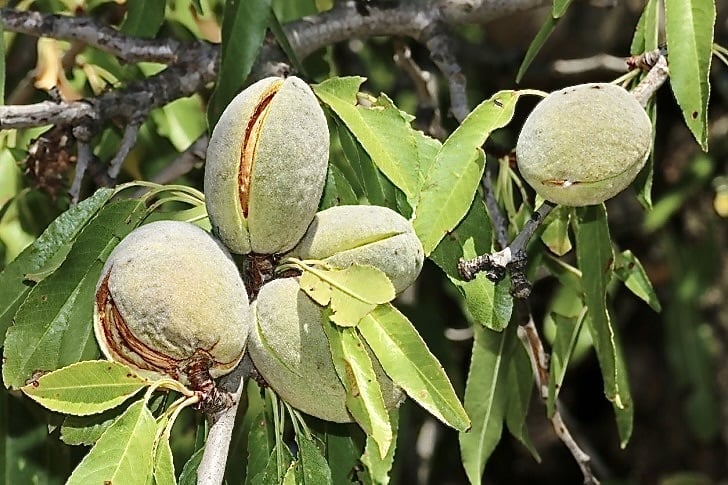December 7, 2025 | 22:36 GMT +7
December 7, 2025 | 22:36 GMT +7
Hotline: 0913.378.918
December 7, 2025 | 22:36 GMT +7
Hotline: 0913.378.918
As the country’s breadbasket, California currently supplies about one-third of the nation’s vegetables and 75% of its fruits and nuts. In 2022, the state exported nearly 24 billion USD worth of agricultural products, much of it to international markets like China. As a result, when China imposed retaliatory tariffs, California farmers were hit hard.

Vast vineyards in Central California.
Experts at the University of California, Davis (UC Davis) have issued a warning: if a new trade war erupts between the United States and China, California's agriculture industry could face annual losses of up to 6 billion US dollars and a reduction of as much as one-quarter of its agricultural export value.
“This would create a domino effect across California, from the expansive almond orchards of the Central Valley to the smaller vineyards nestled in the state’s renowned wine regions", said Colin Carter, professor emeritus of agricultural economics at UC Davis.
Officials at the U.S. Department of Agriculture (USDA) have hinted that the administration might offer aid funds for impacted farmers again, but the federal government might not be in a position to offer as much support or recovery tools if the Trump administration continues slashing staff, programs and budgets.
During the first trade war under President Trump, China responded to U.S. tariffs by imposing steep duties on a range of key California crops, including almonds, walnuts, and pistachios. These retaliatory measures led to a sharp decline in commodity prices, reductions in planted acreage, and mounting financial pressure on producers. Many farmers, unable to cover costs, were forced to sell off land, scale back operations, or declare bankruptcy.
According to a 2022 study by the UC Davis, the first trade war has resulted in a staggering loss of 27 billion US dollars for U.S. agriculture, with California’s nut farmers facing approximately 880 million US dollars in losses alone. Although the Trump administration implemented a 12 billion US dollar aid package, most of these funds were directed to the Midwest, leaving California’s farmers with little support.
“The first trade war was a disaster for California agriculture and in particular for tree nut exports – and they never really recovered,” said Mr. Colin Carter. “Prices for pistachios and almonds have only just begun to rebound", he added, “but now the tariffs are even higher”.
While still struggling with extreme weather events that damage crops and stringent water regulations, California farmers are under additional pressure from cuts to agricultural budgets, tighter immigration policies, and the cessation of research funding during Trump’s presidency.

76% of the world's almond supply comes from the state of California, USA. Illustrative photo.
This issue is having a serious impact on the almond industry in California, which accounts for 76% of global almond consumption, with three-quarters of its production being exported annually. While Australia, the second-largest producer, asserts that it can meet the demand of countries unwilling to pay higher prices.
Almond producers are well aware of the risks and are urging the Trump administration to consider its decision carefully. Mr. Rick Kushman, a spokesperson for the Almond Board of California, stated that they are "closely monitoring the impact" from both retaliatory levies and US tariffs that could affect imported materials the industry relies on.
“Almonds remain California’s top agricultural export, 5.8 billion USD in 2024, underscoring their importance to both the state and national economies", Ms. Alexi Rodriguez, the president and CEO of the industry advocacy group Almond Alliance, wrote in a letter to agriculture secretary, Mr. Brooke Rollins, and trade representative Jamieson Greer in March.
“When US tariffs are imposed, the resulting retaliatory tariffs could significantly disrupt U.S. almond exports, depress farm prices, and further shift market share to competitors", Ms. Alexi Rodriguez said, noting that California almonds contribute more than 9 billion USD to the state’s economy.
But even as Trump takes grave risks with California agriculture in his attempts to rework global markets, few in the industry have been outwardly critical of his actions. Many growers are instead focusing on their confidence that the president will come through with campaign promises to make more water available for thirsty crops, even as supplies grow shorter.
Translated by Phuong Linh

(VAN) Newly designated initiatives in Australia, Canada and South Africa represent science-based and inclusive examples of ecosystem restoration.

(VAN) Rice-based food has been selected as Japan's 'Dish of the Year' for 2025, reflecting public interest in the stable supply of the country's staple food amid a recent rice shortage.

(VAN) A research project in Sweden explored how valuable substances can be extracted from organic waste, such as food waste and animal manure, and how this loop can be closed by producing animal feed.

(VAN) Average retail fertilizer prices continued to be mostly higher during the fourth week of November 2025, according to sellers surveyed by DTN.

(VAN) Inaugural Appeal focuses on cost-effective agricultural solutions that link urgent needs with long-term resilience.

(VAN) Landmark SOLAW 2025 report reminds us that resources for food are not infinite.

(VAN) Climate change is a growing concern for agricultural productivity and several studies have focused on how climate variations can impact crop yields.